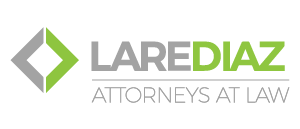Getting Your Commercial Lease Deposit Back: Importance of Contractual Contingencies
What Are Contractual Contingencies in a Commercial Lease?
Contractual contingencies are essentially safety nets in a commercial lease agreement. They are specific conditions or events that must be satisfied by one party for the other party to be required to perform its obligations. If these conditions aren't met, as the tenant you may have the right to back out of the agreement without any adverse legal consequences. For instance, you might include a contingency that the lease term will only commence if you obtain a certain business license. If you fail to get the license, the contingency allows you to terminate the lease without penalty. In the context of getting your commercial lease deposit back, contractual contingencies are crucial. They can protect you from losing your deposit due to circumstances beyond your control.
How Can I Use Contractual Contingencies to Protect My Deposit?
To protect your deposit, it's important to include specific contingencies in your lease agreement. For example, you might include a contingency that allows you to get your deposit back if the property becomes uninhabitable due to a natural disaster and the landlord fails to make necessary repairs timely. Another common contingency is the right to terminate the lease if your landlord doesn’t complete preparation of the Premises to suit your business within a specified time frame. This protects you from being locked into a lease you can't afford because the Premises is not suitable for your business. The key to using contractual contingencies effectively is to be as specific as possible. Vague or general contingencies may not provide the protection you need.
What Does Pennsylvania Law Say About Commercial Lease Deposits?
In Pennsylvania, there are no specific laws governing commercial lease deposits. This means that the terms of your lease agreement will largely determine whether you can get your deposit back. However, Pennsylvania law does require landlords to act in good faith. This means they can't unfairly withhold your deposit or use it to cover normal wear and tear. If your landlord refuses to return your deposit without a valid reason, you may have grounds for a lawsuit.
What Are Some Common Disputes Over Commercial Lease Deposits?
One common dispute is over the condition of the property at the end of the lease term. Landlords may claim that the tenant caused damage beyond normal wear and tear, and therefore, withhold part or all of the deposit. Another common dispute arises when a tenant terminates the lease early. In such cases, the landlord may attempt to keep the deposit as compensation for the early termination in addition to exercising other remedies. Disputes can also arise if the landlord sells the property before the end of the lease term. The new owner may direct the tenant to the prior landlord for return of the deposit.
How Can I Avoid Disputes Over My Commercial Lease Deposit?
There are several steps you can take to avoid disputes over your commercial lease deposit. First, make sure your lease agreement clearly outlines the terms for the return of the deposit. This should include the conditions under which the deposit will be returned, as well as any circumstances that would allow the landlord to withhold the deposit. Second, document the condition of the property at the start of the lease. Take photos or videos and keep a written record of any existing damage. This can help protect you against claims of damage at the end of the lease. Finally, maintain open communication with your landlord. If issues arise, try to resolve them amicably before they escalate into disputes.
What Should I Do If I'm Facing a Dispute Over My Lease Deposit?
If you're facing a dispute over your lease deposit, the first step is to review your lease agreement. This will help you understand the terms and conditions for the return of the deposit and identify any breaches by the landlord. Next, gather any evidence that supports your claim. This might include photographs or videos of the property, receipts for repairs, or correspondence with the landlord. If you're unable to resolve the dispute through negotiation, you may need to take legal action.
Can I Get My Deposit Back If I Break My Lease?
Whether or not you can get your deposit back if you break your lease depends on the terms of your lease agreement. Some lease agreements include a clause that allows the landlord to keep the deposit if the tenant breaks the lease. However, the landlord may still be required to mitigate their damages by attempting to re-rent the property. If the landlord is able to re-rent the property quickly and at the same rent, you may be entitled to the return of your deposit. However, if the landlord incurs costs in re-renting the property, such as advertising costs or lost rent, they may be able to deduct these costs from your deposit.
What If I Want to Sublet the Property?
If you want to sublet the property, it's important to check your lease agreement first. Some lease agreements prohibit subletting, while others may allow it with the landlord's consent. If your lease allows subletting and you find a suitable subtenant, this could be a way to recover some or all of your deposit. However, remember that if you sublet the property, you're still responsible for the lease. If the subtenant fails to pay rent or causes damage to the property, you could still be held liable.
If you're facing a dispute over your lease deposit or want to avoid one in the future, call LareDiaz Law today at 215-774-5159 for a no-charge consultation!
Contact
Eric Diaz
Founder and Managing Partner
diaz@larediaz.law
